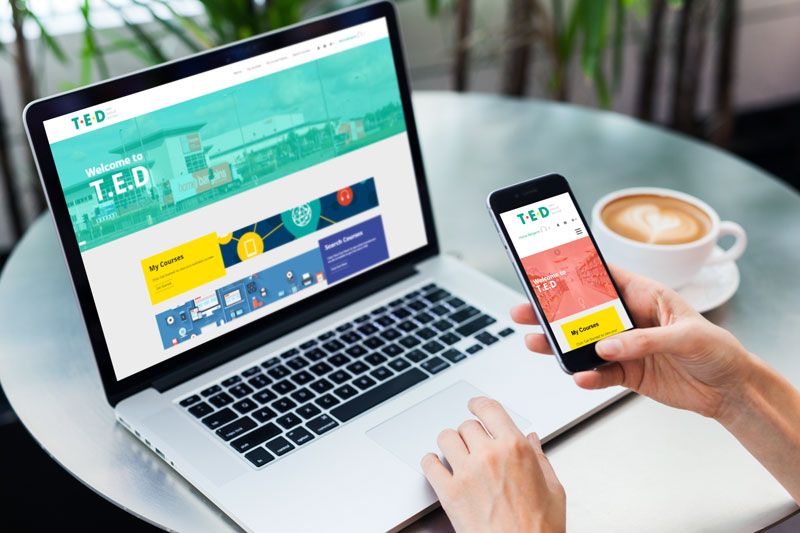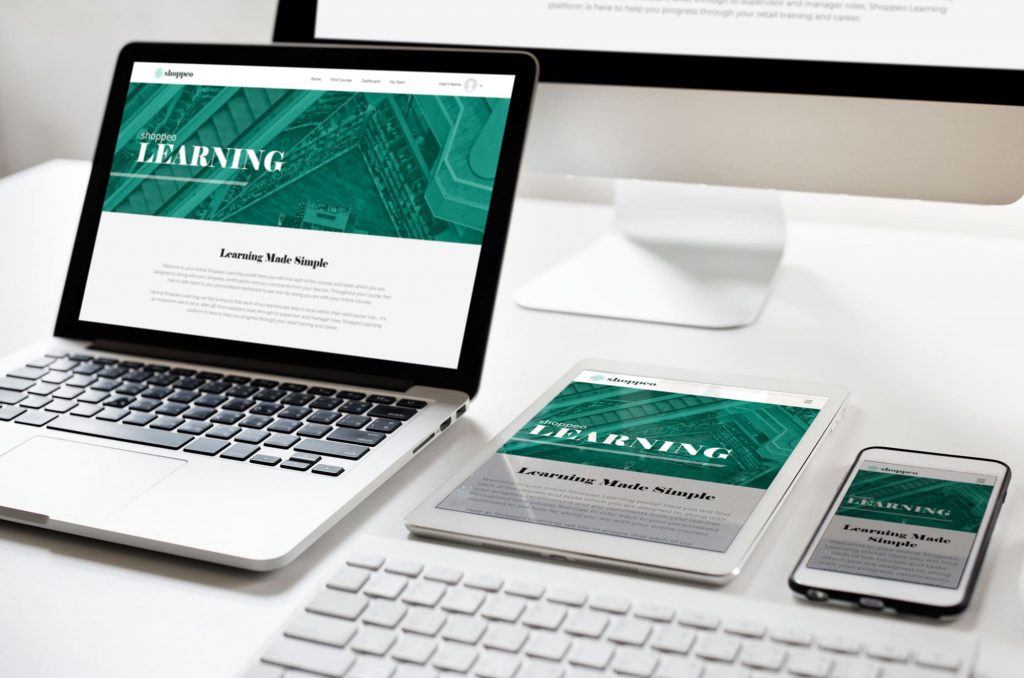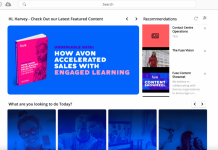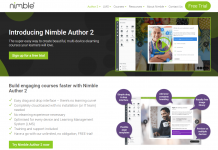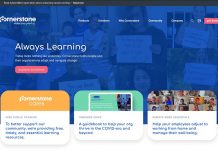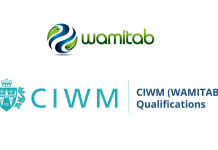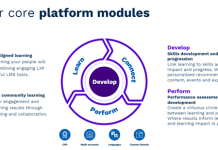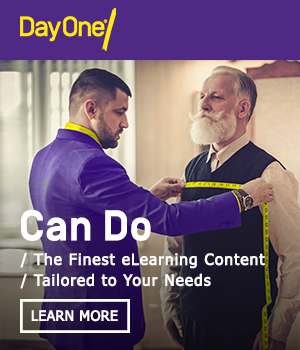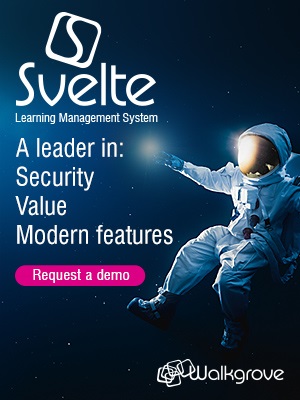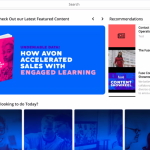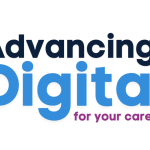Hubken Group is a long-established LMS provider in the UK with an impressive lineup of clients, so David was keen to learn more about makes the company tick. In this review of their solutions, he was impressed with the emphasis on close client support and a collaborative approach to helping users make the most of their learning platform.
If you are looking at how to implement an LMS with maximum positive impact and minimum fuss, then Hubken may well be a great company to work with…
Hubken Group is a successful UK based LMS service provider offering Totara and Moodle solutions. These are two very hot platforms at present, both going through exciting times, with Moodle resonating in the market and Totara recently launching Learn 13 and an LXP and talent management solution. So, it was great that Ian and Lee at Hubken were able to find me some time to share how they go about implementing an LMS.
Hubken, (once known as HowToMoodle) have been doing this since 2004, and have clearly built an approach that works and one that is perhaps a little (well quite a lot actually) different from that of others, so it’s worth taking some time to walk it through.
Many organisations are keen to understand what happens when you implement an LMS and rightly so. Perhaps what they don’t realise is that when commencing a dialogue with Hubken before you have even bought the LMS, Hubken are ready thinking about how to deliver a smooth implementation process and what’s needed to help you succeed.
Ian and Lee were keen to point out that Hubken invest very heavily in understanding your needs, standardised or out of context demos are not what they do. Hubken are going to ask you the right questions from the outset on a scoping call so that the subsequent system demo is tailored to your requirements.
To be fair, many providers are keen to know as much about your business and your learning requirements as possible and that is of course all good, but far fewer will offer you a demo that has been configured to your needs at this stage. This attention to detail is a common thread through the Hubken approach.
Hubken are fundamentally a service provider who listen to your unique needs with regard to system requirements, number of users, timeframes and budgets and to then present you with options. They are not really selling you a piece of technology, they are providing you with a flexible needs focused elearning service.
Just so you know, Hubken specialise in open source LMS, but apply a SaaS model, with cloud hosting. The flexibility of open-source software (read price and configurability) and the benefits of a SaaS delivery model.
With a SaaS model from Hubken, all users benefit from new feature releases and Hubken take care of the updates to the latest version of Moodle and Totara for you, as part of the contract, no hidden extras.
I like this re-assurance a lot and it is so important for organisations grappling with technology that your vendors look out for you going forward – and Hubken really do look out for you.
So, let’s assume you have signed and the project commences – what does the implementation process look like? Well, the process can be surprisingly quick, so off we go:
1. Set Up
Using a SaaS model, a working branded LMS can be set up very quickly, in just a few days. Alongside this Hubken are now working with you on the detailed implementation plan. Hubken offer a LMS branding service in which they can align the branding with your own or with their ‘branding lite’ they give you the tools to amend site branding yourself. They also offer a ‘branding assurance’ policy which means any branding applied to your platform won’t be lost when upgrades go ahead.
2. Training
Step two is training for the team managing your LMS. Hubken put a huge focus on this. There is a comprehensive video library for those topics where self-directed learning is most suitable, but that is not all.
Hubken deliver online training programmes for each client, this includes fundamentals that everyone needs to know but also plenty of scope to focus on the aspects of the system most important to you. Five sessions are the norm.
The approach to putting the training in first is well considered as Hubken are going to work with you to configure your LMS to your specific needs. It could be a compliance orientated configuration or a skills development configuration.
New clients then receive live training on core system functionality and can ask questions on anything that is of special importance to them.
3. Deal with the Data
With the training in place the data phase forms the next component of the implementation pathway. Data is imported, integrations established and hierarchies set. Hubken put a lot of effort into this phase collaboratively with you the client leveraging the power of Totara or Moodle.
Hubken has a refreshing approach to integrations with this data focused component of implementation. Hubken builds out base layer APIs for all its users who can then utilise them to best effect.
4. Design the Workflows
The next phase is about bespoking the LMS, setting up the workflows, creating the reports and schedules, developing dashboards and importantly documenting everything in detail. This is where your learner journeys are created, your administrator roles designed and UI and UX finessed.
The really elegant and impressive element to this is that you, the client LMS team understands what is going on and can contribute and quickly gain a high degree of confidence that the LMS is going to do what is required of it. Hubken are keen to ensure that the configured LMS meets your definition of success.
Hubken also offer an e-commerce solution with a course shop which is popular with clients who need to sell their courses to customers or make them available to members. A way to open a revenue stream using your LMS.
5. SLA, Support and Scaling Up
Hubken have a commitment to support, offering unlimited help desk assistance to administrators and reckon they have a 2-hour response time in most cases. Infrastructure support is 24/7 with 99.9% uptime. Hubken’s technical architecture is highly scalable.
Hubken offers LMS user bandings for as few as 150 learners, but also provide elearning platforms for international organisations with tens of thousands of learners. Start size and scalability are not an issue, which makes costs flexible. Reassuring in these volatile times.
It is noteworthy that Hubken offer 1-year contracts, no long-term lock ins and this indicates to me that their approach is successful as they achieve a high contract renewal rate and equally high customer satisfaction statistics from their regular surveys.
Hubken also offers a content partnership option with Go1 as a 12-month contract or on a pay as you go model.
A Hubken LMS Implementation in Summary
There is a lot to think about in implementing an LMS and the approach Hubken takes I feel is a particularly effective one. The focus on understanding your business from the customisation of the demonstrations and subsequent training provided to meet your business needs is impressive.
Training is not an afterthought when working with Hubken, training is designed for you to understand your new LMS from the outset to ensure that it meets your organisational requirements when going through the implementation process (as opposed to the implemented implementation). This is the Hubken approach.
Impressively, Hubken can evidence sophisticated implementations completed in just a few weeks.
This means decisions taken about data, hierarchies and workflows during the set up and implementation process will be made with the focus on the organisation’s requirements, that may be ROI, compliance or upskilling, or more likely all three and maybe even more, but following this approach this is quite achievable.
Support is not supplied in hours, but is unlimited. I guess Hubken can “take this on the chin” as the process followed in implementation is so very robust it becomes a nice to have for the customer, not a need to have.
Learn more about this excellent LMS services and support provider on their website at www.hubkengroup.com


